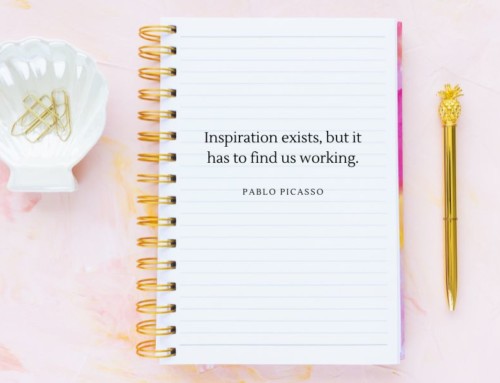I’ll let you in on a secret: writing is less about professional training and more about creative confidence. Anyone can string together a few decent sentences. The difference is that those with creative confidence will share their decent sentences with anyone and everyone, while other writers hide their work away from the world—proclaiming it isn’t good enough for public consumption.
Don’t get me wrong, there is a difference between putting work out that hasn’t been revised, edited and proofread, and putting out work that you deem lesser than someone else’s work.
Each time you negatively compare your work to another, devaluing your skillset, your talent, or your entire creative existence, you are desecrating your creative confidence. If you do that one too many times, you could convince yourself of altogether abandoning the gift of storytelling.
The good thing is, you can never get too far down that road of negativity. It does take work, however, to get yourself back on a confidence-building path. That work lies solely within you—no one else can give you confidence, especially confidence in your own writing. You have to cultivate it deep within your soul. How do you build creative confidence? First, we have to look at the three most common forms of confidence-bashing we subject ourselves to.
3 Ways to Kill Creative Confidence
1. Don’t share your work with anyone—ever.
Have you ever played one of those team-building games where you write down one thing no one would know about you, and the team has to guess who wrote it? Well, you don’t want to be the person that puts, “I like to write,” on a piece of paper and no one can guess it’d be you. We each have talents and gifts that we are to share within our communities. If no one knows you write because you’ve never told them or shared something you’ve written with them, are you sharing your gift? I’m not saying you need to run up the closest mountaintop and scream, “I’m a writer!” for all to hear. Instead, find little ways to share your writing: join a local writing group, offer your services to the church newsletter or local newspaper, share short stories in Facebook posts. The more you share, the more creative confidence you build each time.
2. Spend more time comparing your work to other people instead of honing your own craft.
We live in a world where anyone can shame us for something we said, did, or didn’t do. Trends like fat-shaming and mom-shaming are negative social behaviors that fuel the bullying society we live in. Don’t let negativity from outside sources—or yourself—infiltrate your creative space. Stop comparing your work to something you’ve read, stop devaluing your own work, and stop telling others your work is awful. The more you hear negativity or speak negativity into existence, the more damage you do to your creative confidence. Words are powerful; you must be careful about how you use them.
3. Take all criticism as negative criticism instead of looking at it as a learning experience.
Maybe you’re not type one or two mentioned above, maybe you’ve shared your work with others and you don’t speak about your own work negatively, which is great. However, as soon as you receive criticism that doesn’t fall in line with what you want to hear, you shut down.
First off, criticism is part of the creative process, but how you respond to it and what you do with the information is 100% up to you. Instead of taking the criticism too personally, remove yourself and your emotions from the equation. Then, examine the facts provided in the feedback and use it as a way to improve your craft even more.
Everyone, from Shakespeare to Hemingway to Thoreau, was told they didn’t have what it took to craft a well-written story at some point in their writing careers. All three writers’ works now serve as teaching elements in English classrooms across the country—and the world. If these literary greats had taken negative criticism to heart, I wouldn’t be able to quote lines from Shakespeare’s plays, I wouldn’t have fallen in love with The Sun Also Rises in my American Literature class, and I wouldn’t know that I could appreciate Thoreau’s descriptions of nature.
Now: how do you flip the script, find your creative confidence, and keep it?
Most importantly, hold this truth close to your heart: if God has placed a calling on your heart to write, you must obey and write.
Second, if you feel unsure about your writing skills from an educational standpoint, pick up a copy of The Elements of Style and get those nitty-gritty English rules in your writer’s toolbox. A builder can’t build a house without tools, and you can’t write a book without your writing toolbox.
Third, you have to write—a lot. Not everything you write will be shareable with the public, but that’s not the point. Share the work you’ve poured your heart and soul into, the work you’ve revised, rewritten and edited to perfection. Then, ask people what they honestly think about it. Stow every compliment, every “I loved it” in the back of your head. When you’re having a particularly rough day (and they will come), roll back over those compliments, and believe them!
Once you start filling your creative energy with positive reinforcement, you’ll grow your creative confidence. And trust me—confidence is like gold in the creative world.
Discover more from Mill City Press
Subscribe to get the latest posts sent to your email.














Leave A Comment